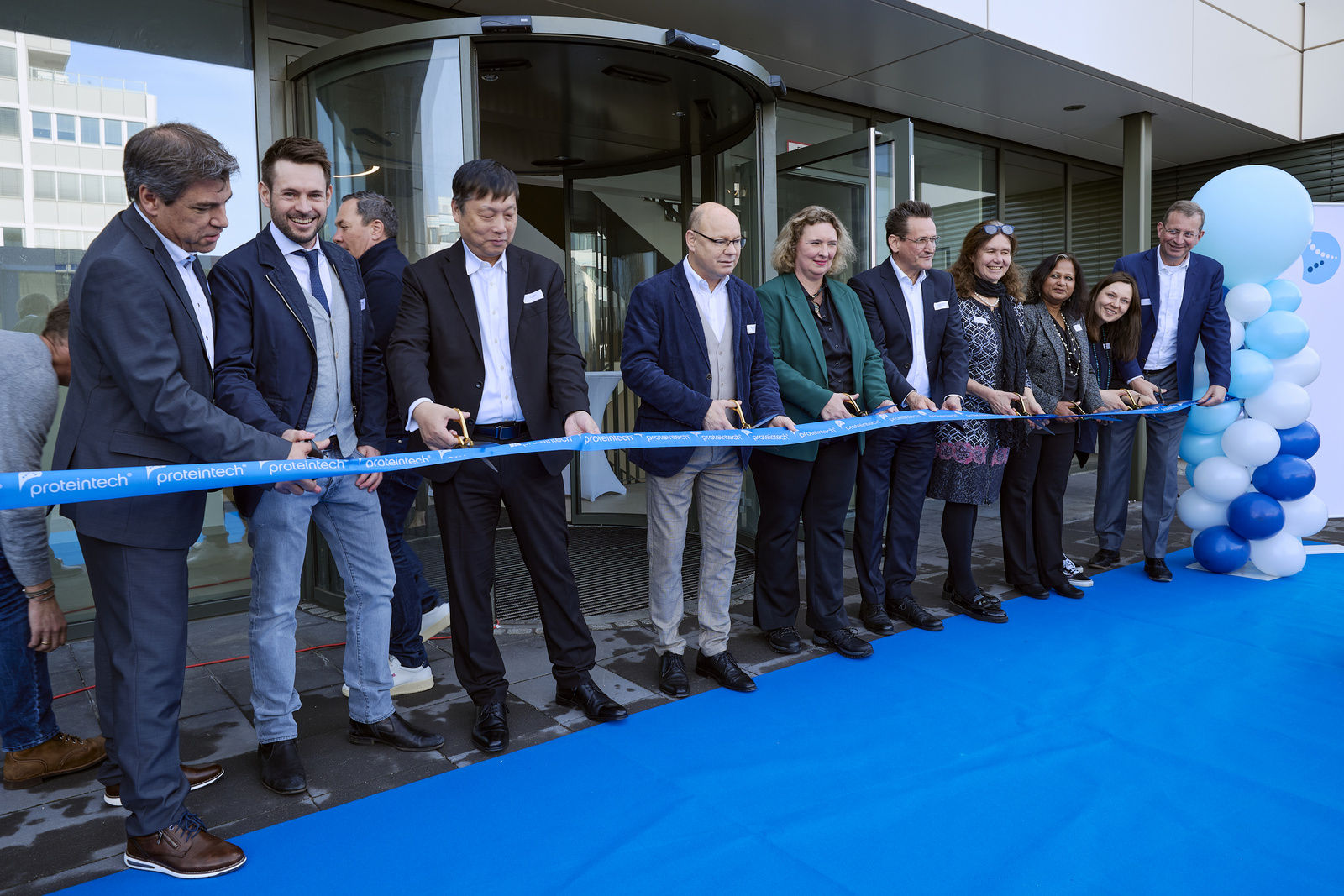- Startseite -
- Digital Bavaria -
- Blog #bytevaria - What is bioeconomy and how is Bavaria leading the way?
What is bioeconomy and how is Bavaria leading the way?
Did you know that wood can be used to produce anything from tyres to pharmaceuticals in a sustainable way? This is just one example of how renewable bio-based resources will transform the fossil-based economy into a bioeconomy. Let’s explore its potential and see how Bavaria is driving its dedicated bioeconomy strategy “Future.Bioeconomy.Bavaria”.
The circular bioeconomy is on track to make a significant contribution to climate protection. This can be achieved by using bio-based carbon (assimilated from atmospheric carbon dioxide (CO2) ) in recyclable products and hence reducing CO2 emissions from fossil-based carbon sources. But that’s not all: the bioeconomy also aims to promote resource efficiency and create new opportunities for both economic growth and innovation.
Innovation across different sectors of industry, or cross-industry innovation, will be a key driver in building the bioeconomy. That’s why Bavaria is predestined to lead the way: It has a strong collaborative culture, an extensive infrastructure of research and development facilities, cluster initiatives in the relevant industry sector, and plentiful raw material reserves. The Bavarian bioeconomy strategy “Future.Bioeconomy.Bavaria” published end of 2020 made this a reality by laying down no less than 50 concrete measures to develop the location as a leader in sustainable products and production methods.
How does the bioeconomy work?
The basis of the bioeconomy is the sustainable use of bio-based materials, i.e., renewable biological resources such as plants, animals, and microorganisms in a circular system.
Let’s take the example of wood.
Biorefineries can decompose wood and straw into their different components to a high degree. The most common biomolecular component of plant biomass, cellulose, can then be used not only in paper production but also for textiles, medical products, cosmetics, or pharmaceuticals. Hemicelluloses are used to obtain xylose as the basis for xylitol (a sugar substitute) and furfural, an important platform chemical for the production of pharmaceuticals.
Lignin serves as a dispersant or binding agent in building materials, textiles, and in wood-based materials industries. It also forms the basis for a variety of specific products such as aromatic substances (e.g., vanillin), and ethene, benzene, and acetylene. Finally, lignin can also be used as a raw material for biocarbon fibres.
The bioeconomy encompasses various biogenic materials and sectors including agriculture, forestry, fisheries, food production, biofuels, bioplastics, bio-based chemicals, pharmaceuticals, and more. In Bavaria, the key focus will be on (but not limited to) wood and straw.
Click here for a comprehensive overview of the bioeconomy in Bavaria. It is still evolving, but is already very visible: many successful companies have begun using technologies to help produce next-generation materials or are developing breakthrough products.
Business examples from the Bavarian bioeconomy
Wisefood has already marketed millions of products that replace plastic items with better alternatives. What once started as a student project has now evolved into a fast-growing food tech company.
They currently export to more than 20 countries worldwide, with more than 1,000 products in their portfolio.
Since its founding, more than 100 million plastic straws have been replaced, among others with the “SUPERHALM” or “superstraw”. In addition to durum wheat or semolina, which provides stability, SUPERHALM consists of fruit fibres obtained from a residual material produced during the manufacture of apple juice. It is available in different lengths and diameters.
Well-known hotel groups and other companies in the hospitality industry count among the customers of Wisefood.
“Making smart biotech materials for everyday life” is the mission of AMSilk. Headquartered in Neuried near Munich, AMSilk GmbH is the world’s first industrial supplier of smart biotech materials based on silk proteins. The company turns man-made proteins into silk formulations including fibres and yarns for textile applications, sprayable compounds, hydrogels, and silk powder for medical use or consumer goods. With the use of special programming it is also possible to customise end applications or to obtain desired properties. AMSilk can thus supply silk material for a wide range of applications. These include advanced materials such as composites for sports shoes, but also substances used in the medical field for coating breast implants to prevent infections and reduce postoperative complications. The fibre and medical fields are just two examples of the many diverse areas of application across various industries.
Every day, chilled and frozen food, reagents, enzymes, vaccines and shock-sensitive products circulate safely and sustainably in thousands of Landboxes. Over 1,000 customers from the food, pet food, pharmaceutical, and life science sectors rely on the Alling-based company’s sustainable thermal packaging. Since 2014, Landpack has been working to replace common polystyrene packaging (which is extremely hard to dispose of in an environmentally friendly way) with high-performance alternatives made from renewable raw materials such as straw or hemp.
With its wide range of bank note and security document substrates and innovative security features, Papierfabrik Louisenthal is the gold standard for bank note security. It is universally recognised as a world leader in its industry. Their scientists and engineers develop advanced technology solutions, processes, and services for bank notes and other security papers that close the gap between security functions and aesthetic appeal. But that’s not all: Together with its parent company Giesecke & Devrient, it launched the so-called “Green Banknote Initiative” to develop a bank note with the smallest carbon footprint possible – without compromising on durability or security. To make the Green Banknote as sustainable as possible, they needed to scrutinise each and every component. The result is impressive: The Green Banknote emits 29% less CO2 and uses 86% less plastic than polymer bank notes – and lasts just as long as a regular bank note.
What makes Bavaria a perfect location for your bioeconomy company?
In addition to excellent infrastructure, Bavaria boasts a broad-based research landscape. A large sustainable wood supply offers suitable raw material from forestry. Qualified, trained personnel are readily available from numerous universities and colleges such as the Technical University of Munich (TUM), the Friedrich-Alexander University (FAU), or Hof University, which offer both bachelor’s and master’s programs.
Key success factors for the bioeconomy are a broad knowledge base and the promotion of innovation. With the TUM Campus Straubing for Biotechnology and Sustainability TUMCS, Bavaria created an institution designed to implement interdisciplinary research and provide instruction in the bioeconomy. In addition, there is a Centre for Biobased Materials (ZBM) at the Rosenheim University of Applied Sciences. In the spirit of the circular bioeconomy, the ZBM will develop high-quality products with new functionalities through the intelligent use of the natural material properties of wood.
Through the Bavarian Cluster Initiative, companies and research institutions are networked with each other to carry out projects more easily. The following clusters bring together companies and research institutions active in these fields in networks:
- Biotechnology
- Chemicals
- Nutrition
- Forestry and wood
- Industrial biotechnology
- New materials
- Environment.
Finally, the aforementioned Bavarian Bioeconomy Strategy supports the growth of the local bioeconomy with measures ranging from public education to the building of biorefineries. It also seeks to foster cross-industry innovation and collaboration in the field – not just on a local but also on an international level.
In this spirit, international collaborations are already underway. For example: the Fraunhofer Institute for Process Engineering and Packaging has set up a joint work group with the Fraunhofer Project Center for Innovation in Food and Bioresources at ITAL (Institute for Food Technology) in Campinas (São Paulo, Brazil) to study the processing of high-quality raw materials and foods such as coffee, chocolate, and tropical fruits and to study the utilization of biogenic raw materials and residual materials for industrial applications.
Interested of participating in the evolving Bavarian bioeconomy with your ideas and your company?
Check out our success stories and get inspired. Invest in Bavaria can guide you in exploring the potential. Our services are free, confidential, and customised to your needs. Talk to us first!

How a passion can transform into a successful business

Chicago/Planegg-Martinsried: the US-based Proteintech Group triples the size of its site in Bavaria – with a key focus on research & development, production and logistics


![[Translate to English:]](https://ik.imagekit.io/sgliwi1izsz/media/images/team_2021/mitarbeiter/Katinka-Uppendahl.png?tr=w-1024 1024w, https://ik.imagekit.io/sgliwi1izsz/media/images/team_2021/mitarbeiter/Katinka-Uppendahl.png?tr=w-1280 1280w, https://ik.imagekit.io/sgliwi1izsz/media/images/team_2021/mitarbeiter/Katinka-Uppendahl.png?tr=w-1536 1536w, https://ik.imagekit.io/sgliwi1izsz/media/images/team_2021/mitarbeiter/Katinka-Uppendahl.png?tr=w-1920 1920w)